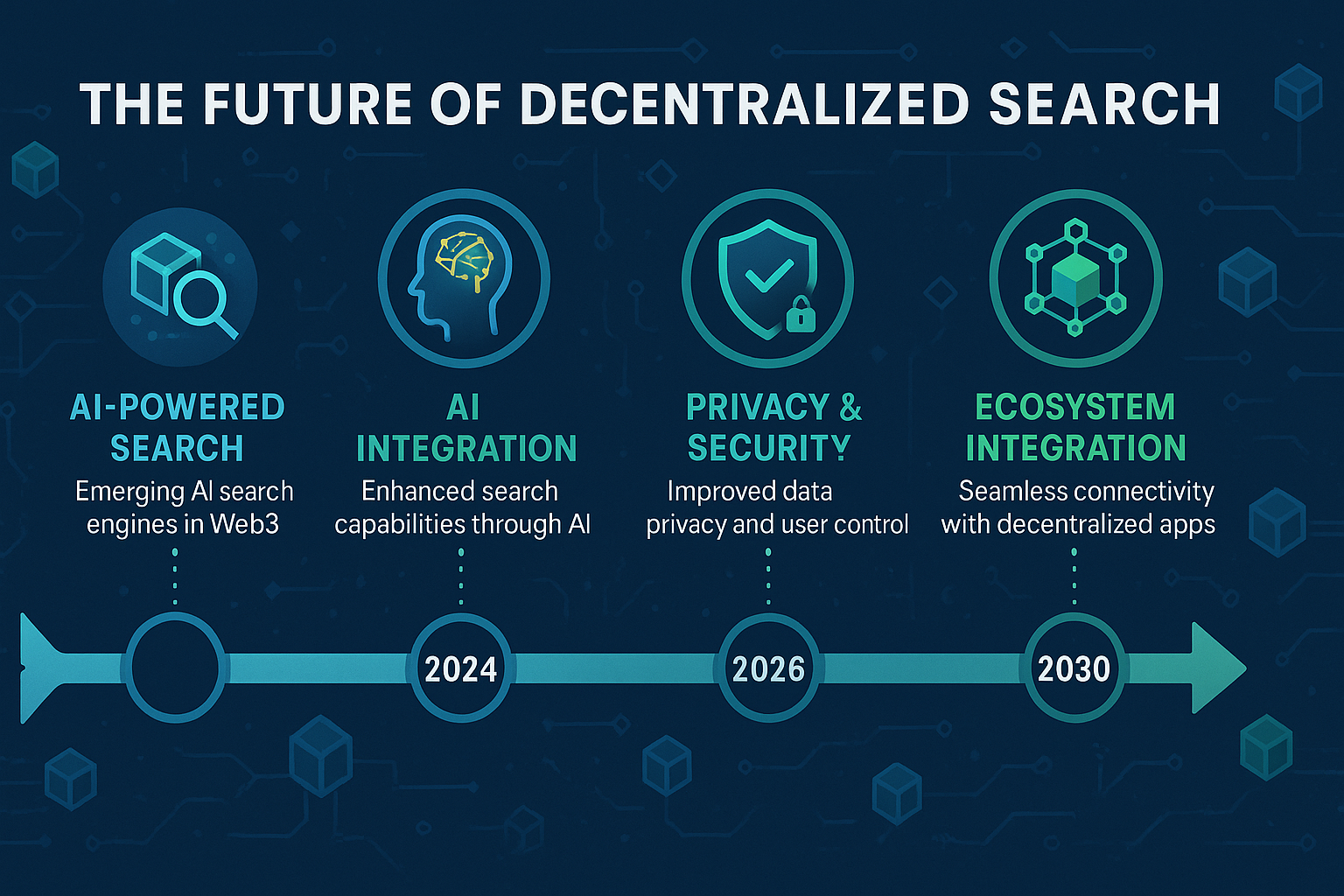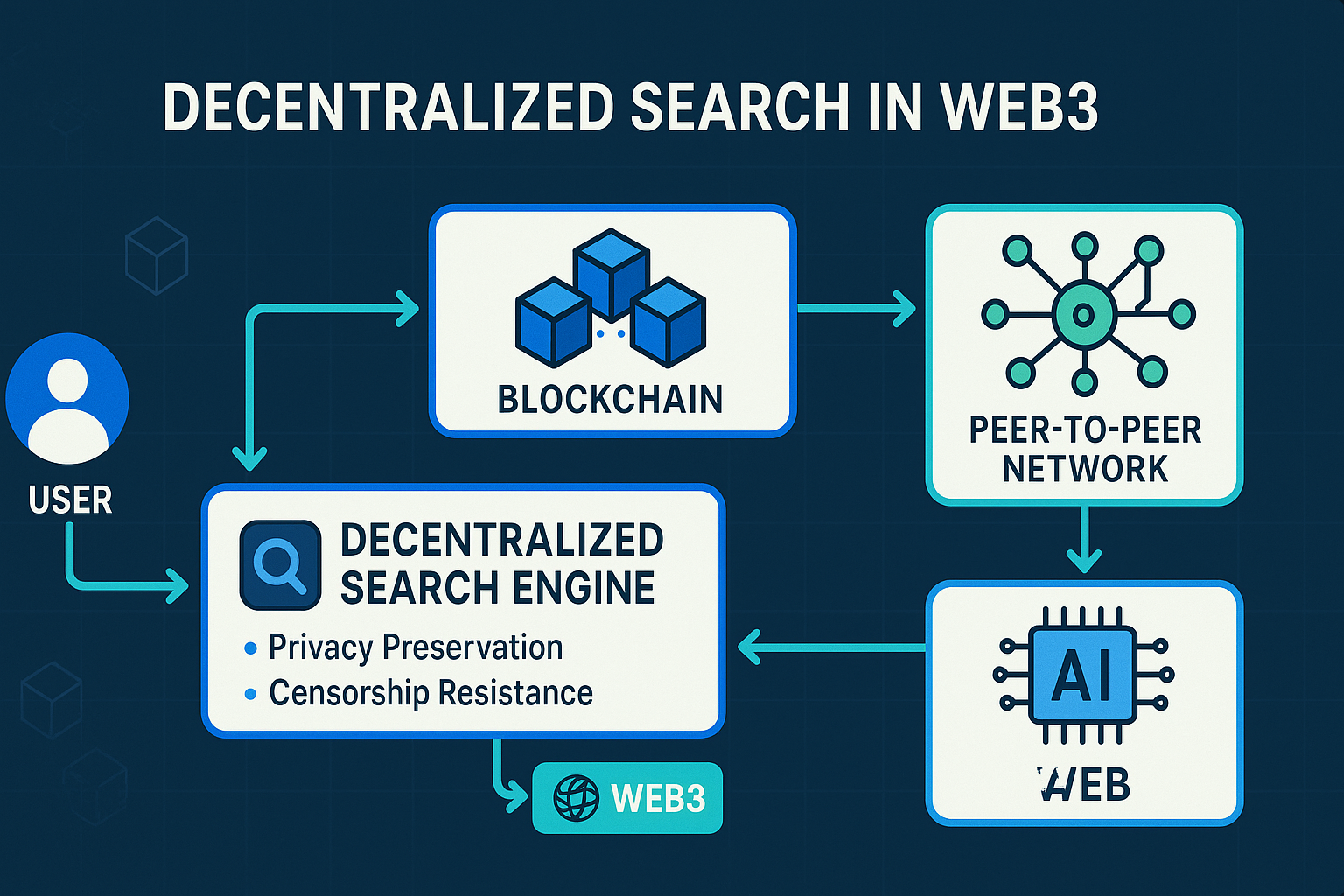Markdown Content:
Table of Contents
- Introduction
- Understanding Decentralized Search in Web3
- Decentralized Search Algorithms for NFT Domain Indexing
- User-Driven Discovery Platforms in Blockchain Marketplaces
- Using Decentralized Search Platforms for Web3 Domain Management
- The Future of Decentralized Search in Web3 Ecosystems
- Conclusion
Introduction
The rapid evolution of Web3 has brought forth a groundbreaking shift in how digital assets and identities are discovered, managed, and secured. At the epicenter of this transformation lies decentralized search—an innovation set to redefine not only domain discovery but the very notion of online sovereignty and user-driven value.
In this comprehensive guide, you'll discover:
- How decentralized search empowers users with censorship resistance, privacy, and transparency—reshaping digital discovery.
- The technical evolution behind decentralized search engines and their pivotal impact on Web3 Domain Discovery.
- Actionable strategies for leveraging these revolutionary tools to enhance your digital identity and Web3 domain management.
Decentralized search marks a fundamental departure from traditional, centralized engines dominated by corporate gatekeepers. Instead of opaque algorithms and data silos, decentralized search leverages blockchain, peer-to-peer networking, and transparent coding to empower users. As adoption of Web3 domains and blockchain-based identities surges, the ability to discover, validate, and manage domains free from censorship and manipulation is more critical than ever.
Recent industry trends highlight a remarkable rise in interest: with a trend score of 85 and ecosystems like D3, 0xSearch, and Timpi paving the way, decentralized search is rapidly becoming a cornerstone of next-gen digital infrastructure. Marketers, developers, and forward-thinking businesses are seeing not only improved security and ownership, but new monetization models and opportunities for authentic engagement.
Quote: “In the age of information, owning your data and discovery process is the truest form of digital freedom.”
In the following sections, we’ll unpack the transformative potential of decentralized search from core technology to user-centric platforms, showing how it drives the future of Web3 domain discovery.
What is Decentralized Search?
Decentralized search refers to search engines and indexing services architected upon blockchain and distributed networks, rather than controlled by a central entity. Every user, node, and participant has a stake in maintaining, operating, and evolving the search experience. Unlike Google or Bing, which operate as corporate silos, decentralized search platforms prioritize data sovereignty, user privacy, and democratized visibility.
Importance in Web3 Domain Discovery
The importance of decentralized search for Web3 Domain Discovery cannot be overstated. With censorship resistance, transparency, and algorithmic fairness, these search models enable equal opportunity for all domain holders—regardless of network size or capital. This democratization unlocks vast, previously hidden domain opportunities, fosters true innovation, and strengthens digital identity protections.
Overview of Content Goals
- The architecture and algorithms powering Decentralized Search in Web3
- How NFT and blockchain domains are indexed and surfaced
- The emergence of user-driven and social-powered discovery platforms
- Actionable tactics for managing, discovering, and safeguarding domain assets
- Key trends, technologies, and the future outlook for search in the decentralized web

Understanding Decentralized Search in Web3

What is Decentralized Search? [Word Count: 400]
Decentralized Search in the context of Web3 refers to search technologies engineered on blockchain and distributed networks, as opposed to corporate-controlled environments. In these systems, data and control are distributed across nodes, effectively eliminating single points of failure and giving users increased sovereignty over their search experience and data. Instead of a centralized algorithm ranking results based on opaque commercial interests, decentralized platforms rely on open-source logic and community-governed protocols—a paradigm shift with far-reaching implications.
Unlike traditional search engines, decentralized search platforms, such as D3 and 0xSearch, introduce mechanisms that prioritize user privacy, eliminate reliance on centralized servers, and enable censorship resistance. For instance, D3 empowers its users to contribute to and e
Leave a Reply